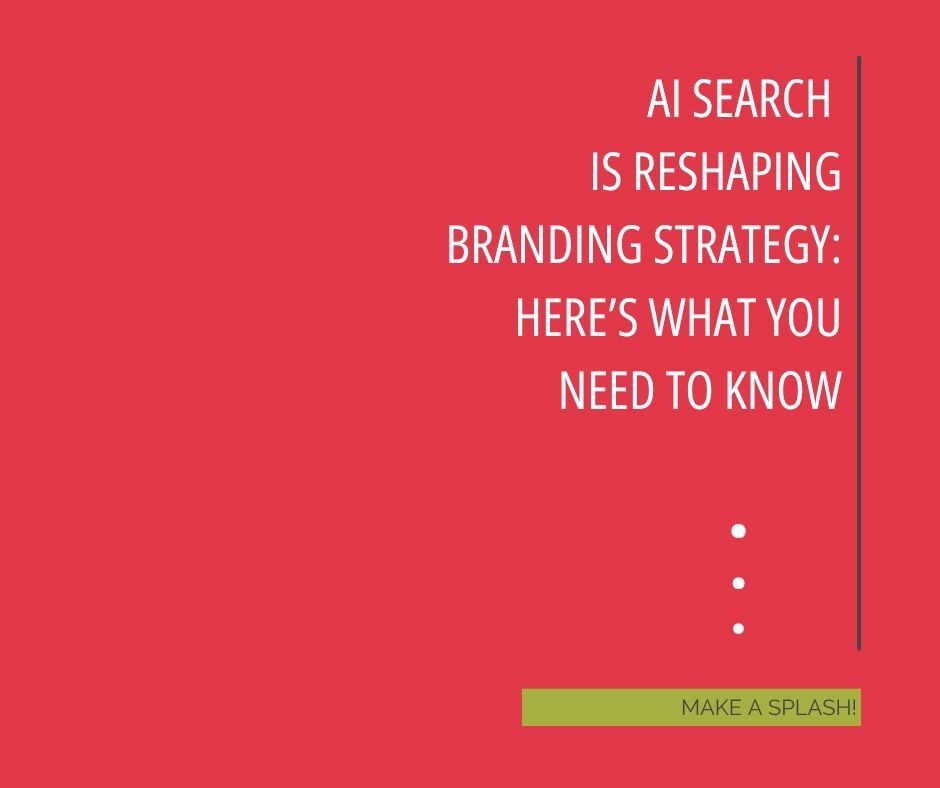The search landscape is changing dynamically. As consumers increasingly turn to AI-powered search tools like ChatGPT and Google’s AI Overviews for answers, traditional search engine optimization is evolving and requiring more consideration about AI optimization. This transformation presents both opportunities and challenges for brands seeking to maintain visibility and influence within a heavily AI influenced world.
Consumers are showing an increasing trust in AI-generated search results, viewing them as more comprehensive and unbiased than traditional search listings. This shift represents a fundamental change in how people discover and evaluate brands. With these new AI summaries leading search results, the sources are now perceived as experts, creating a new reality for marketers. Being mentioned in AI responses can create strong brand positioning, develop trust, and drive significant brand awareness. But what about sources that are not featured? Ultimately, market position could be negatively impacted, website traffic becomes reduced, and engagement falls.
To manage this new AI search era, brands need to consider strategies beyond keywords and links – they need to focus on quality content and information that AI can easily evaluate and understand.
What strategic approaches can be taken to effectively manage a brand?
Be a thought leader. An effective strategy for AI visibility involves establishing genuine subject matter expertise. AI systems favor authoritative sources which makes thought leadership content a critical component of a strategy. Building in-depth content that showcases expertise, publishing original research, and consistently sharing insights that position the brand as a trusted industry source are all important considerations. PR will remain an essential piece of this strategic puzzle.
Be organized with your content. AI sources well-organized, clear information, making it important for brands to provide content in an organized and easily digestible manner. Use clear headings, structure data with codes that search engines understand (schema markup), create comprehensive FAQ sections, and organize information in logical hierarchies that AI can navigate effectively.
Be everywhere. Since AI systems draw from diverse sources, brands need comprehensive digital footprints that extend beyond their owned websites. This includes maintaining active profiles on multiple platforms, generating press, and contributing to industry publications. This also means that an organization should evaluate its core messages to ensure consistency where AI might encounter brand information.
What tactics can be implemented to help elevate your brand?
Be a resource. Consider an FAQ or other landing page that provides comprehensive resources, answering common industry questions or other authoritative content positioning you as an expert. For example, content can address specific customer pain points or explain benefits. Keep this content current and review the information regularly.
Be an expert. Earned media, through industry publications or news sources, can be great partners and help position your brand as an authority. Work with your PR team to build relationships with industry analysts, journalists, and influencers who frequently create content that AI systems reference. Provide original research, be a guest author on a popular site, write a column, or be an expert in a media story. All of these avenues can provide a linking strategy and establish credibility. Asking for client-generated content that mentions the brand can also be a great tactic.
Be aware of what’s being said. Monitor brand mentions across the web as outdated information may impact AI-generated brand descriptions. Use this opportunity to get your team on the same page when it comes to brand messaging so that your staff can support these efforts.
A few other tactical recommendations include:
- Become a go-to source for authoritative information by releasing white papers or a comprehensive case study
- Highlight customer success stories to show effective solutions to customer pain points
- Involve yourself in speaking engagements or conference presentations
- Encourage customers to create and share content about their experiences with the brand, creating social proof that your brand reputation is strong
- If you have events, include them in as many local directories as possible to provide local market position and geographic relevance
AI is changing the search game. Successful brands will need to be more vigilant in their content strategy, information architecture, and messaging to be discovered. AI technology will continue to change, so staying informed on what’s coming is critical to brand visibility. Instead of looking at AI as a challenge, embrace this opportunity to shine as an expert and authority in your industry… and your brand will follow.





